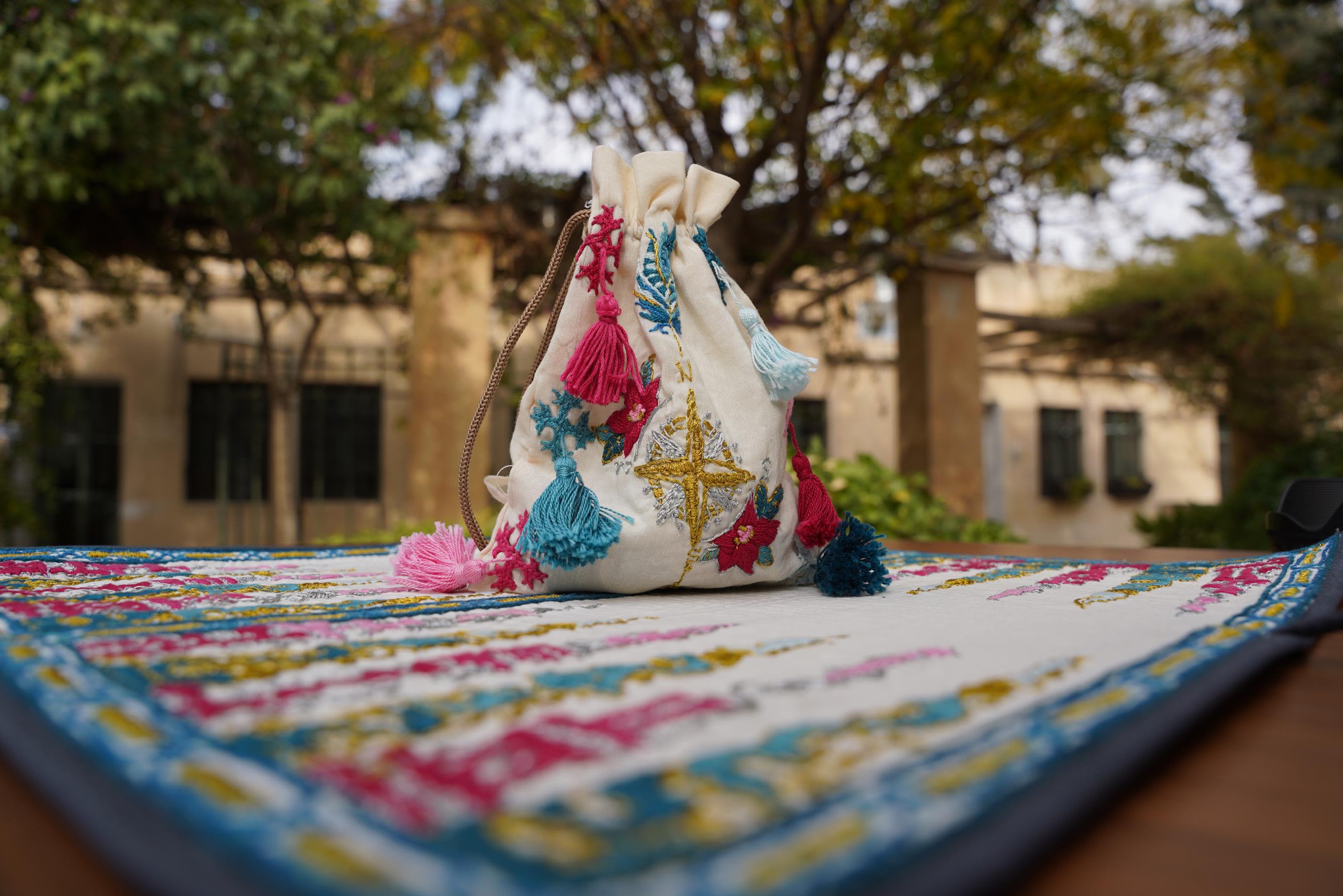
#IWD2023 The Syrian refugees preserving past memories of home

- Written byK. Apeagyei
- Published date 09 March 2023

Syrian Refugee makers in Zaatari Camp, Jordan, have taken up embroidery, as a way to preserve their past memories of home and make new ones. Through a process of making art in these spaces, the women can generate a livelihood and have now developed a sustainable way to live through creative means.
To mark International Women’s Day 2023, we caught up with LCF Professor, Helen Storey, who has been a UNHCR Designer in Residence in the Zaatari Refugee Camp. Helen spoke about her experiences co-creating and delivering 15 projects with Syrian Women and girls within the camp.

Hi Helen, can you talk about why women and girls began to take up artistry and making within the Zaatari Refugee Camp?
Art, craft, and design are powerful languages in a refugee camp, often replacing the spoken word – somehow, the very process of making together acts upon time itself – you, for a moment, are freed from the past and have no need to project into the future. Making brings a particular presence and is perhaps the only time ‘equality’ is possible between us.
Can you describe what the workshops are like? (tone, vibe, discussion, goals etc.)
All projects and workshops are co-created between the participants and workshop leads. They begin with the group discussing what everyone hopes to gain from the session; which can vary from wanting to meet an expert with a particular skill, or simply given the space, time, training and/or materials provisions. Generally, all projects are undertaken with the intention of leading to somewhere concrete, such as creating work to gift, sell, or build a portfolio for future employment opportunities.
Creating work to gift is important, as hospitality and gifting are at heart of Syrian culture, no matter the nature of life that surrounds it. Caring for another and sharing whatever you can is how the spirit survives.

How do the art projects in Zaatari help support equity from an educational, economic, or artistic creation standpoint?
The answer to this differs slightly between young girls and women – Zaatari remains quite a gendered camp. We were first invited to work exclusively with the girls and the wider female community, whilst our male science collaborators from Sheffield University were introduced to the male population of makers, engineers and farmers.
There remains a tradition of early marriage for girls, although groups like the TIGER Girls (These Inspiring Girls Enjoy Reading) have over the years proved to be utterly inspirational in their actions and ambitions for alternative futures for their young lives. The TIGER girls enable adolescent girls to access education programs within Zaatari. We now have girls who design robots, win nationally at Taekwondo and teach their mothers, aunts and grandparents the new making skills they are learning. More recently it has been the TIGER girls who have gone into camp schools to teach about the importance of hand hygiene with our ‘Surprise Toy Soaps’ project.
The displaced life is a uniquely paused one, to which art can bear witness and where what it means to be Syrian is kept alive. Very little can be brought with you when fleeing war, except what you can physically carry, the faith you hold, and the traditions that remind you of who you are, there is a sensitive balance to be respected between moving forward and looking back.
What could 'embracing equity' mean in the context of women and girls in refugee camps across the world?
Every camp is different. Every refugee has their own individual story. 32.5 million stories last year and counting; of the displaced by war, persecution, or climate change, and many millions more. Equity should mean the same the world over, but it doesn’t, and the length of time a camp has been in existence often directly links to how women, and girls, are treated over time.
The world would undoubtedly be a different place if more women made the core decisions that affect all our lives. In other camps around the world, I have noticed it is often men who find themselves unable to meet their own belief for what a ‘man’ should do, which creates violence towards the ones they cannot fully protect or provide for. The resulting gender-based violence is often perpetuated by the protracted length of displacement itself.
Almost every female refugee I have met is brim full of skills many of us will never have to develop. They have much to teach us about striving for equality against all the odds. That silent language; held in the eyes and body, is shared with us, through the universal language of making.

- What’s on at LCF: open days and events
- More LCF Stories